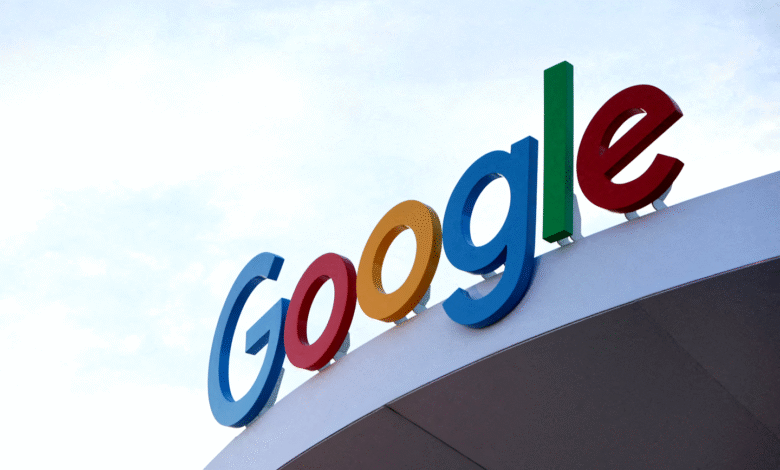New Ruling Could Change How Google Operates in the UK
UK's CMA designated Google with strategic market status in October 2025, potentially forcing changes to search and advertising practices affecting millions of users.

On October 10, 2025, the UK Competition and Markets Authority made a decision that could reshape the digital landscape for millions of British internet users. The CMA designated Google with strategic market status in its search and advertising operations, marking the first major enforcement action under Britain’s new Digital Markets, Competition and Consumers Act. This isn’t just another regulatory slap on the wrist. The ruling gives British regulators unprecedented power to dictate how the world’s most popular search engine operates within UK borders, potentially forcing fundamental changes to services that 90% of British searchers use daily.
The designation doesn’t accuse Google of wrongdoing yet, but it opens the door for significant interventions. Think mandatory data sharing with competitors, stricter controls on how search results are ranked, and new requirements around AI-generated content. For businesses that depend on Google for visibility, advertisers spending billions on search ads, and everyday users who’ve never considered an alternative to Google, the implications could be substantial. This represents Britain’s boldest attempt yet to rein in Big Tech dominance and create a more competitive digital marketplace.
What Strategic Market Status Means
Strategic market status is a new regulatory designation under the UK’s Digital Markets, Competition and Consumers Act that came into force on January 1, 2025. When a company receives this label, it means regulators have determined the firm holds such substantial and entrenched market power that special rules are needed to ensure fair competition.
For Google specifically, the CMA found that the company controls more than 90% of all searches conducted in the UK. That’s not just market leadership; it’s overwhelming dominance. More than 200,000 UK businesses advertise through Google’s search advertising platform, making it the lifeblood of digital marketing for countless companies.
The designation covers:
- General search services
- Search advertising services
- AI-powered features like AI Overviews and AI Mode
- Various search-related products
Notably excluded from the designation is Google’s Gemini AI assistant, though regulators say they’ll keep monitoring as the market evolves.
What makes this different from traditional antitrust investigation approaches is that the CMA doesn’t need to prove Google has already broken rules. The strategic market status framework is preventative, designed to stop anti-competitive behavior before it causes harm rather than punishing it after the fact.
The Investigation That Led to This Moment
The CMA launched its investigation into Google search dominance on January 14, 2025, shortly after the new competition law took effect. The agency spent nine months gathering evidence, consulting with stakeholders, and analyzing Google’s position in the market.
During this period, the CMA received feedback from more than 80 stakeholders, including:
- Competing search engines like Microsoft’s Bing
- News publishers concerned about traffic and revenue
- Advertising firms representing thousands of businesses
- Consumer advocacy groups
- Technology industry experts
The investigation examined three main areas of concern. First, whether weak competition and barriers to entry prevent innovation in search, particularly as AI reshapes the landscape. Second, whether Google leverages its market power to favor its own products over competitors in search results. Third, whether Google collects and uses consumer data without proper consent or compensates publishers fairly for using their content.
Will Hayter, Executive Director for Digital Markets at the CMA, explained the rationale clearly: “By promoting competition in digital markets like search and search advertising we can unlock opportunities for businesses big and small to support innovation and growth, driving investment across the UK economy.”
The CMA’s June 2025 consultation proposed various interventions, and the October designation confirms the agency has the legal authority to move forward with enforceable requirements.
How This Could Change Google’s UK Operations
The real question on everyone’s mind is what happens next. While the CMA hasn’t finalized specific requirements yet, the agency outlined potential interventions in its June roadmap that paint a picture of how dramatically Google operations might change.
Fairer Search Rankings
One possibility involves requiring Google to implement fairer, more transparent search ranking systems. Currently, Google’s algorithm determines which websites appear at the top of search results, a decision worth millions in traffic and revenue for businesses. The CMA might mandate that Google provide clearer explanations of ranking factors or limit how it can promote its own services over competitors.
Data Sharing Requirements
Perhaps the most significant potential change involves forcing Google to share search data with competitors. Google’s vast trove of search queries, user behavior data, and advertising performance metrics gives it an enormous advantage. Requiring data sharing with rivals like Bing or emerging AI search tools could level the playing field and enable genuine competition.
Publisher Rights and AI Content
With AI-generated search responses becoming more common through features like AI Overviews, publishers worry that Google is displaying their content without sending them traffic. The CMA might require Google to give news publishers and other content creators greater control over how their material appears in AI responses, potentially including compensation requirements.
Choice Screens and Defaults
The CMA could mandate choice screens that let users easily select alternative search engines when setting up devices or browsers. This approach has been tried in Europe with mixed results, but regulators believe giving users genuine choice matters.
Interoperability and Switching
Making it easier for users to switch search engines without losing personalized features or search history could reduce switching costs that currently lock people into Google’s ecosystem.
The CMA consultation on specific interventions is expected to begin later in 2025, with Google and other stakeholders having opportunities to respond before final requirements are imposed.
Google’s Response and Industry Reactions
Google hasn’t taken this lying down. Oliver Bethell, Google’s Senior Director for Competition, issued a pointed response emphasizing that Britain has benefited from early access to Google innovations precisely because it avoided the “unduly onerous regulations” seen in Europe.
“Many of the ideas for interventions that have been raised in this process would inhibit UK innovation and growth, potentially slowing product launches at a time of profound AI-based innovation,” Bethell warned. The company argues that its search product contributed £118 billion to the UK economy in 2023 and that excessive regulation could jeopardize that contribution.
Google’s concerns aren’t entirely unfounded. In Europe, similar digital markets regulation under the EU’s Digital Markets Act has led to fragmented user experiences and complaints from both users and businesses. Google removed popular features like integrated flight search and hotel listings to comply with EU rules, which arguably made the search experience less convenient.
However, competition advocates paint a different picture. They argue that Google’s dominance has stifled innovation for years, preventing better alternatives from emerging. Publishers particularly welcome the scrutiny, having watched their traffic and advertising revenue increasingly captured by Google’s own properties.
Sarah Cardell, the CMA’s chief executive, emphasized that the goal is balance: “It’s our job to ensure people get the full benefit of choice and innovation in search services and get a fair deal.”
Global Context: UK Joins Worldwide Crackdown
The UK’s action doesn’t exist in isolation. It’s part of a global wave of regulatory pressure on Big Tech companies, particularly Google.
In the United States, a federal judge ruled in August 2024 that Google illegally maintained its search monopoly through exclusive deals with device makers and browser developers. The Department of Justice has proposed remedies including forcing Google to divest its Chrome browser and limiting Android’s ability to favor Google search.
A separate US case examining Google’s advertising technology resulted in findings that the company monopolized digital ad markets, harming publishers and advertisers. Courts found Google used anti-competitive auction manipulation to cement its position.
The European Union has been even more aggressive. The European Court of Justice upheld a €2.42 billion fine against Google for favoring its own comparison shopping service in search results. The EU’s Digital Markets Act designated Google as a “gatekeeper” requiring it to follow strict rules around interoperability, data portability, and self-preferencing.
Japan, Canada, and Australia have also launched investigations into various aspects of Google’s business practices, from smartphone contracts to search advertising technology.
This coordinated global scrutiny suggests regulators worldwide have reached similar conclusions about Google’s market dominance and its effects on competition. The UK’s approach is notable for being more flexible than the EU’s prescriptive rules while more proactive than the US’s case-by-case litigation model.
What This Means for UK Businesses and Consumers
For the average person in Britain, changes might seem subtle at first. You could see more prominent options to try alternative search engines. Search results might look different if Google can’t give its own products preferential placement. AI-generated answers might attribute sources more clearly or drive more traffic back to original publishers.
For businesses, particularly small and medium enterprises, the stakes are higher. If Google must share data with competitors, suddenly advertising on Bing or newer platforms might become more effective and potentially cheaper. If ranking factors become more transparent, SEO strategies might need to evolve.
Publishers and content creators stand to gain if Google must compensate them for content used in AI responses or provide better attribution. The shift could redirect some of the billions in advertising revenue currently captured by Google back to the websites creating the content users actually want.
Digital marketers are watching carefully. Google Ads represents the primary customer acquisition channel for countless UK businesses. Any changes to how search advertising works, data availability, or campaign management tools could require significant strategy adjustments.
Competing search engines like Microsoft Bing, DuckDuckGo, or emerging AI-powered alternatives might finally get a realistic shot at winning market share if the playing field becomes more level.
Potential Penalties and Enforcement
The Digital Markets, Competition and Consumers Act gives the CMA serious enforcement teeth. Companies designated with strategic market status that fail to comply with conduct requirements can face fines up to 10% of their global annual turnover.
For Alphabet, Google’s parent company, that could theoretically mean penalties in the tens of billions of dollars. That’s not a symbolic slap on the wrist; it’s genuinely painful enforcement that gets boardroom attention.
Beyond financial penalties, the CMA can:
- Impose specific behavioral remedies requiring changes to business practices
- Mandate pro-competition interventions like data sharing or interoperability
- Issue enforcement orders with ongoing compliance monitoring
- Allow businesses and consumers harmed by violations to bring civil claims for damages
The Competition Appeal Tribunal can review CMA decisions, but appeals are limited to judicial review standards rather than full merit review, making it harder to overturn designations or requirements.
Google has pledged to engage “constructively” with the CMA, but the company is clearly preparing for a long fight. Whether that involves compliance, legal challenges, or some combination remains to be seen.
Timeline: What Happens Next
The CMA expects to begin formal consultation on specific interventions later in 2025. This process will involve publishing proposed requirements, gathering feedback from Google and other stakeholders, and refining the final rules.
Realistically, concrete changes to how Google search operates in the UK probably won’t materialize until 2026 at the earliest. The regulatory process moves deliberately, and Google will use every available avenue to shape requirements in its favor.
Meanwhile, the CMA has signaled it plans to launch similar investigations into other tech giants. Apple faces scrutiny over its mobile ecosystem, including the iOS operating system, App Store, and Safari browser. Other platforms could follow.
This is just the beginning of what’s likely to be years of back-and-forth between UK regulators and the world’s largest technology companies. The strategic market status designation for Google represents a starting gun, not a finish line.
Lessons from Europe’s Regulatory Approach
The UK can learn from Europe’s experience implementing similar rules under the Digital Markets Act. The DMA designated six major tech platforms as gatekeepers and imposed strict requirements around interoperability, data portability, and preventing self-preferencing.
Early results have been mixed. On one hand, the rules have forced changes; Apple opened iOS to alternative app stores, and Google modified its search presentation. On the other hand, tech companies have engaged in what critics call “malicious compliance,” making changes that technically satisfy requirements while maintaining advantages through other means.
Google’s response to EU rules illustrates the challenge. The company removed integrated features like Google Flights and Shopping from search results, arguing it was complying with self-preferencing restrictions. But users complained the experience became less useful, and traffic shifted to intermediaries like booking sites rather than directly to airlines and hotels as intended.
The lesson for the CMA is that prescriptive rules need to be carefully designed to achieve actual competitive benefits rather than just checking regulatory boxes. The UK’s more flexible, case-by-case approach might allow for better-tailored requirements, but it also requires vigilant enforcement to prevent gaming the system.
Broader Implications for Tech Regulation
The Google designation represents a test case for how democratic countries can regulate dominant digital platforms without stifling innovation or driving companies to exit markets entirely.
The UK is threading a delicate needle. Post-Brexit, Britain wants to establish itself as a leader in technology and innovation, attracting investment and talent. But it also recognizes that unchecked tech giant dominance can harm consumers, small businesses, and the broader economy.
The Digital Markets, Competition and Consumers Act reflects this balance. Unlike some proposals to break up big tech companies, the UK approach allows dominant firms to maintain their market position if they play by rules designed to ensure fairness and competition.
Whether this model succeeds could influence regulatory approaches worldwide. Countries watching include Canada, Australia, Japan, and others considering their own digital competition laws.
The stakes extend beyond Google. How the CMA handles this first major strategic market status designation will signal how it plans to approach Apple, Meta, Amazon, and other platforms facing similar questions about market power.
Conclusion
The CMA’s decision to designate Google with strategic market status marks a turning point in how Britain regulates its digital economy. With Google controlling over 90% of UK searches and wielding enormous influence over which businesses succeed online, regulators concluded that special rules are necessary to ensure fair competition. The designation doesn’t impose immediate requirements but empowers the CMA to mandate significant changes to Google’s search and advertising operations, from data sharing with competitors to fairer treatment of publishers and clearer ranking practices. While Google warns these interventions could harm innovation and slow product launches, competition advocates argue they’re essential for creating genuine choice in a market dominated by a single player for too long. As consultations on specific requirements begin later this year, businesses, consumers, and the tech industry worldwide will be watching to see whether Britain’s flexible, targeted approach to digital market regulation can succeed where others have struggled.







